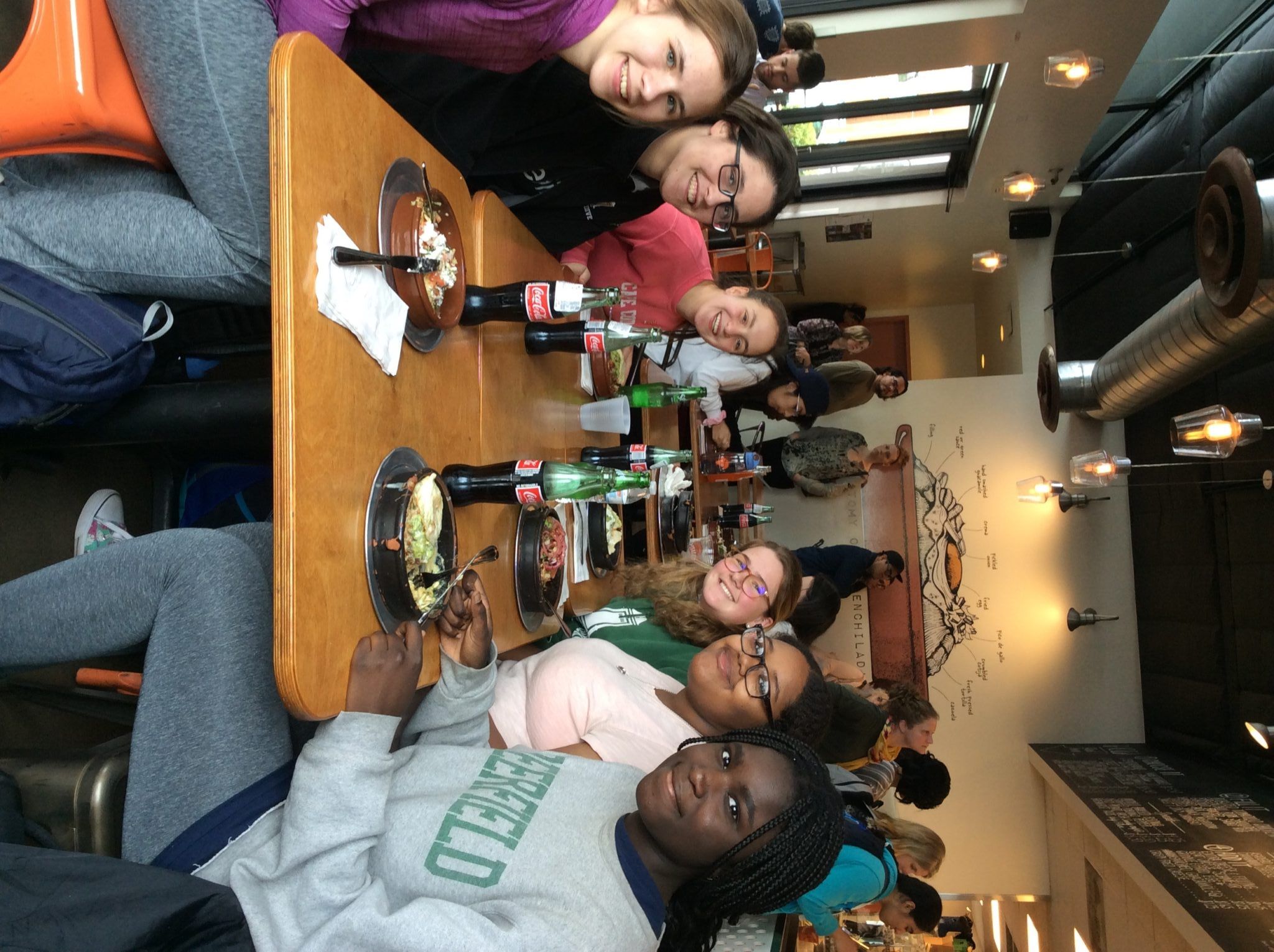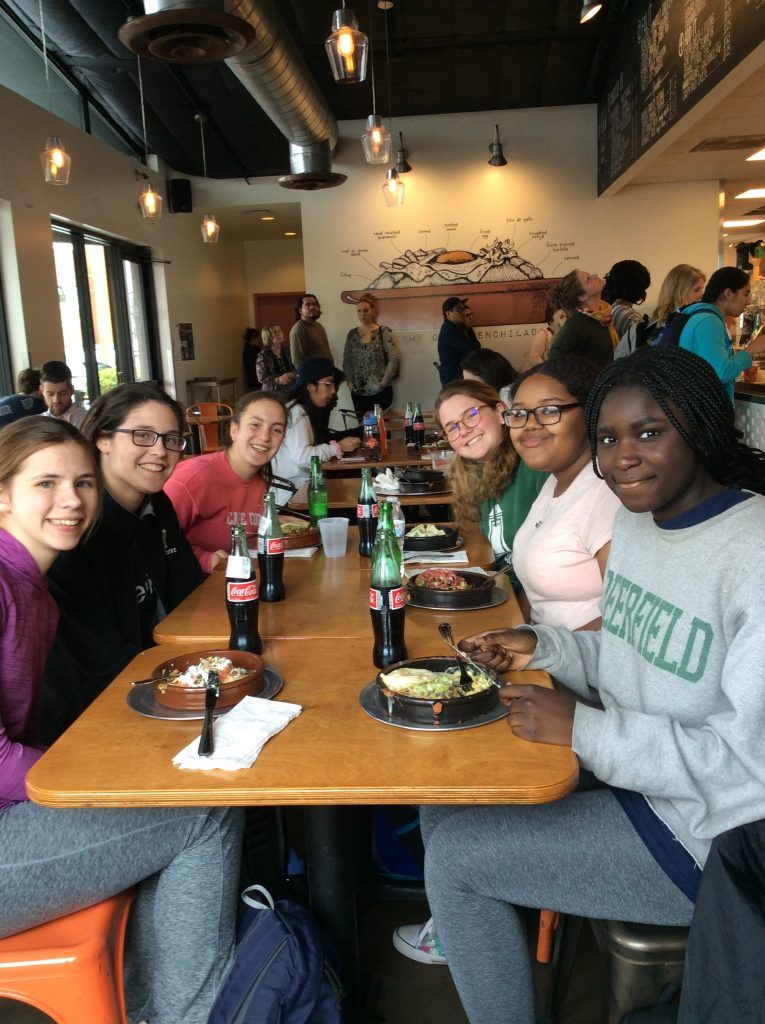Maya Laur ’20 shares a reflection from her visit with Pima Vocational High School.
We walk into the first classroom on the left of Pima Vocational High School. White Tiled floor. Cushioned chairs. Papers strewn across tables in the back. Posters advertising the importance of “Enterprising” and “Work Ethic.” I sit down next to Alexis, a Junior at the school. “I’m Maya.”
“Hi, I’m Alexis.”
We smile nervously at each other. I regret wearing my bright green Deerfield sweatshirt. I hadn’t meant to draw attention to myself. Now I realize I’m wearing my prep-school identity as a label that only highlights how the two of us are different. But, Alexis is unfazed.
“What’s your school like?” she leans across the table.
I tell her that I’m taking Spanish at home, that I don’t board at Deerfield, that I live on a mountain in the woods. She tells me that she loves to go hiking on weekends, that she works two jobs to support her siblings and single mother, that she’s a daughter of immigrants, that she looks forward to school every day. I lean in further.
Sometimes at Deerfield, I forget what it means to work. My definition of the term is limited to tests and research projects and logarithmic equations. I forget that outside our bubble, hard work is not measured by how many logarithmic equations I complete or how many hours I spend on my essay. At Pima Vocational High School, it’s a matter of how many jobs one holds, how many siblings one supports.
A teacher of mine once told that the students at his former school in a lower-income community of Maine worked much harder than we did. Now I know what he meant. Although not everyone at Deerfield comes from privileged backgrounds, quite a few of us do. I’ve had to juggle multiple projects before. But I’ve never had to juggle two jobs and six classes. I have a job in the summer but as soon as school comes around I can set it aside and focus on my education. I am one of the few in this country who gets to choose when I work and when I don’t. I am one of the few who gets to choose whether I spend my money on groceries or save it for college. I don’t speak for everyone at Deerfield. But, I do know this: I am not the definition of hard work. Yes, I do four to five hours of homework a night. Yes, I stay in class until every last one of my questions is answered. But, these are not burdens. They’re privileges. I can afford to devote four hours a day to homework. I can afford to stay in class for as long as I want to.
Alexis, on the other hand is the definition of hard work. She doesn’t need the posters on the wall of her high school classroom to tell her what it means to buy dinner for her family or drop of her siblings at school in the morning. In my eyes, my teacher was right. Alexis works harder than I ever will. But, is that how our country sees her? Does our country really reward hard work, when all I’ll I have to do to guarantee that I’ll go to college is write a couple of essays ,and when Alexis had to drop out of school for a year just to take care of her family? When her mother crossed oceans to give her a better life, our country labels Alexis “lazy” because she’s 19 and still in High School.
I realize my Deerfield sweatshirt is fitting. For, me, it’s a mark of my privilege. It’s something I should acknowledge and own. Yet, it shouldn’t be a marker of hard work. In this country, hard work shouldn’t necessarily look like me. It should look like Alexis, sitting across from me in Pima Vocational High School, white tiled floor, cushioned chairs, advertising the importance of “work ethic,” on the wall.

